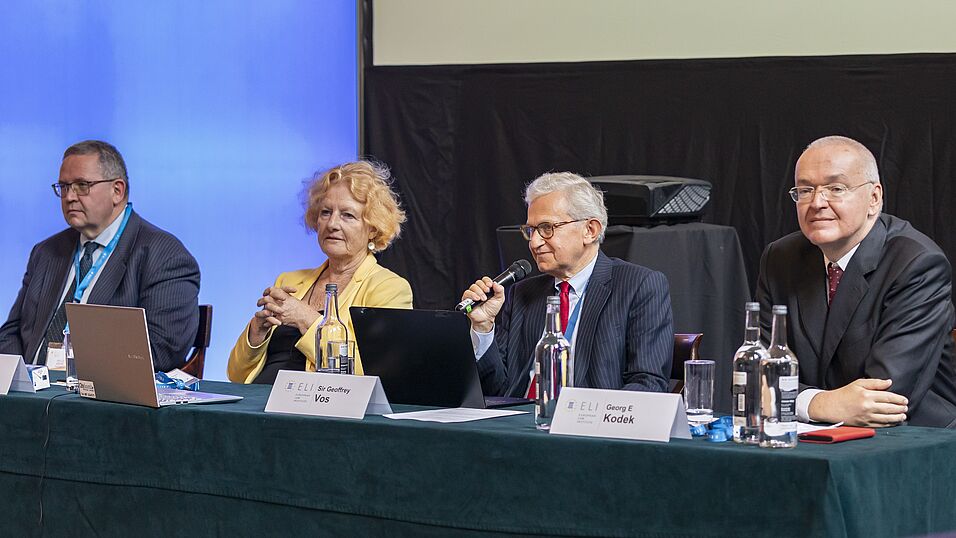The discussion focused on how digital transformation can improve civil justice by enhancing efficiency while upholding core justice values. Panelists noted that technology should add value beyond speeding up processes, with AI aiding case analysis and digitalisation improving case management. The panel was chaired by Sir Geoffrey Vos (ELI Vice-President; Judge; Master of the Rolls and the Head of Civil Justice in England and Wales)
Dory Reiling (Lead Reporter of the ELI project on Digitalisation of Civil Justice in Europe; Retired Senior Judge, Amsterdam District Court), began by outlining the project and emphasising that, for too long, information technology has been marketed as a way to make legal processes faster and cheaper. This is a flawed approach, in her view. Rather our focus should be on how technology can improve the delivery of justice, with priority given to the system’s users, open justice and procedural fairness.
Among other things, Georg Kodek (President, Austrian Supreme Court) added that while artificial intelligence (AI) is not used to draft judicial decisions due to the human decision-making requirement under Article 6 of the European Convention on Human Rights, technology does assist courts in other areas. In Stuttgart, Germany, for example, courts use AI to compare facts with legal precedents, producing components of judgments, but human oversight remains essential.
Villu Kõve (Chief Justice, Supreme Court of Estonia), highlighted Estonia’s fully digitalised justice system, which has transformed case management and improved document handling, particularly in complex cases. Technology allows for less subjective decisions and simplifies increasingly complex legal processes, Kõve noted that the move to digitalisation has made justice more efficient and accessible.
Dirk Staudenmayer (Head of Unit Contract Law, European Commission, DG JUST), rounded out the discussion by stressing the need to increase efficiency in civil justice systems. He also echoed two other key goals: improving access to justice for both citizens and businesses and enhancing interoperability between legal systems. He further championed the need to seize this opportunity to embrace technology and drive better outcomes for all users.
The discussion on digitalisation of civil justice systems at the ELI Annual Conference emphasised the transformative role of technology in improving legal processes, while maintaining a strong commitment to the values of fairness and human oversight. ELI remains dedicated to advancing initiatives that promote greater efficiency, access to justice and interoperability across Europe’s legal systems. For more insights, follow ELI’s ongoing work in the Digitalisation of Civil Justice Systems in Europe project, among others.

